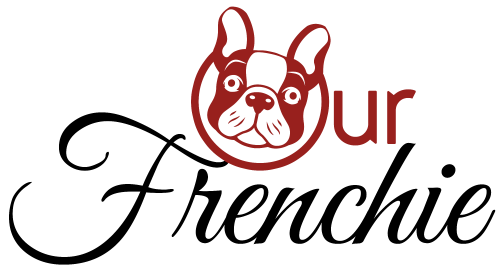About
How to Become an Expert at French Bulldogs
Page Contents
1. Introduction to French Bulldogs: A Fascinating Breed
French Bulldogs are a captivating breed that has gained immense popularity in recent years. With their unique physical appearance and friendly temperament, it’s no wonder why so many dog enthusiasts are drawn to them. In this section, we will delve into the intriguing world of French Bulldogs, shedding light on their origins, characteristics, and why they make exceptional companions. Origins: - French Bulldogs, also known as “Frenchies,” originated from a crossbreeding of English Bulldogs and smaller local dogs in France during the 1800s. – They were initially bred to be toy-sized versions of Bulldogs, serving as loyal and affectionate companions to lace workers in Nottingham, England. – Their distinct bat-like ears and compact bodies make them easily recognizable and adored by dog lovers across the globe. Characteristics: - French Bulldogs are known for their friendly and sociable nature. They are highly affectionate dogs that thrive on human interaction and make excellent family pets. – Despite their small stature, Frenchies possess a sturdy build, characterized by a muscular physique and a distinctive square-shaped head. – Their expressive eyes, often adorned with a soulful gaze, enhance their amiable appearance and endearing charm. French Bulldogs have garnered a reputation as one of the most beloved dog breeds, capturing the hearts of many. Whether you are considering adopting a French Bulldog or simply want to deepen your understanding of this fascinating breed, the following sections will equip you with valuable insights and expert tips to become well-versed in all things related to French Bulldogs. Stay tuned as we embark on an exciting journey of discovery into the world of these intriguing canines.2. Understanding the Characteristics and Temperament of French Bulldogs
French Bulldogs have a unique set of characteristics and temperament that make them incredibly lovable pets. By familiarizing yourself with these traits, you can become an expert in understanding and caring for this wonderful breed.
Physical Characteristics:
- The French Bulldog is a small-sized, muscular dog with a compact and stocky build.
- They have a distinctive pushed-in nose, bat-like ears, and a preference for expressive and curious eyes.
- Frenchies have a short, smooth coat that comes in various colors, including brindle, fawn, cream, and pied.
- They are known for their charming smile and wrinkled forehead.
Temperament:
- French Bulldogs are affectionate and make excellent companions for individuals and families alike.
- They have a playful nature, enjoying both indoor and outdoor activities.
- This breed is known for being adaptable, adaptable to various living situations, whether in a cozy apartment or a spacious home.
- Frenchies are sociable dogs that thrive on human interaction and love to be part of the family.
- They tend to be patient and friendly with other pets, making them an ideal choice for multi-pet households.
3. Essential Tips for Caring for Your French Bulldog
French Bulldogs are delightful and unique companions, but they require a certain level of care to thrive. To become an expert at French Bulldogs, we’ve compiled some essential tips to help you provide the best care for your furry friend.
Healthy Diet
Proper nutrition plays a critical role in keeping your French Bulldog healthy and happy. Consider the following:
- Quality Dog Food: Ensure you provide a balanced diet with high-quality dog food to meet your French Bulldog’s nutritional needs.
- Portion Control: French Bulldogs are prone to obesity, so carefully measure their food and avoid overfeeding.
- Dietary Restrictions: Some French Bulldogs may have allergies or sensitivities to certain ingredients, such as grains or poultry. Monitor their diet and consult with a veterinarian if necessary.
Exercise and Mental Stimulation
French Bulldogs may have a stocky build, but they still require exercise and mental stimulation to maintain a healthy lifestyle:
- Daily Walks: Regular exercise, such as brisk walks, helps prevent weight gain and promotes healthy circulation.
- Mind Games: Keep your French Bulldog’s mind sharp with puzzle toys or training sessions that challenge their intelligence.
- Socialization: Introduce your French Bulldog to various environments, people, and other animals to ensure they feel comfortable and well-adjusted.
4. The Art of Training French Bulldogs: Effective Techniques and Strategies
French Bulldogs are intelligent and eager learners, making them highly trainable. To become an expert at training French Bulldogs, it’s essential to utilize effective techniques and strategies specific to this breed. Here are some valuable tips to enhance your training skills and create a well-behaved and happy companion:
1. Consistency is key: French Bulldogs thrive on routine. Establish a consistent training schedule and stick to it. This will help your furry friend develop good habits and reinforce positive behaviors.
2. Positive reinforcement: Reward-based training is most effective for French Bulldogs. Use treats, praise, and affection to reward desired actions, such as sitting or following commands. Consistently reinforce these behaviors to ensure they become second nature to your pup.
5. Health and Nutrition Guidelines for French Bulldogs
Ensuring the health and well-being of your French Bulldog is vital to their overall happiness and longevity. By following these health and nutrition guidelines, you can become an expert at keeping your furry friend in top-notch shape.
**1. Balanced Diet**: Providing a balanced and nutritious diet is essential for your French Bulldog’s health. Opt for high-quality commercial dog food that is specifically formulated for small breeds. Look for reputable brands that incorporate essential nutrients, including proteins, carbohydrates, healthy fats, and vitamins.
- Remember to consult with your veterinarian to determine the appropriate portion size based on your dog’s age, weight, and activity level.
- **2. Avoid Overfeeding**: Obesity is a common issue among French Bulldogs, so it’s crucial to monitor their food intake. Overfeeding can lead to a myriad of health problems, including joint issues and decreased mobility.
- **3. Hydration**: Ensure a continuous supply of fresh, clean water for your French Bulldog. Adequate hydration is crucial for maintaining their overall health and preventing urinary tract issues.
- **4. Regular Exercise**: Regular physical exercise is vital for keeping your French Bulldog fit and mentally stimulated. Engage in activities such as daily walks, interactive play, and obedience training to prevent obesity and promote muscle tone.
- **5. Regular Veterinary Check-ups**: Schedule regular visits to the veterinarian to ensure early detection of any potential health issues. Vaccinations, routine examinations, and preventive care are vital for keeping your French Bulldog healthy and happy.
By following these health and nutrition guidelines, you can become an expert at caring for your French Bulldog’s overall well-being. Remember, a healthy and well-nourished Bulldog is a happy companion!
6. Socializing Your French Bulldog: Building a Well-Adjusted Companion
Helping your French Bulldog become a well-adjusted companion is crucial for their overall happiness and behavior. Socialization plays a significant role in achieving this goal. By exposing your Frenchie to various sights, sounds, people, and experiences, you will raise a confident and friendly pooch. Here are some effective tips to make socialization a breeze:
- Start early: Begin socializing your French Bulldog puppy as soon as you bring them home. The first few months are vital in shaping their behavior and attitude towards the world. Introduce them to diverse environments, other dogs, and different types of people.
- Positive reinforcement: Encourage good behavior and positive interactions by rewarding your French Bulldog with treats and praise. This will reinforce their confidence and willingness to engage with others.
- Gradual exposure: Introduce your Frenchie to new experiences gradually, allowing them to adapt at their own pace. Start by familiarizing them with quieter environments and gradually progress to busier ones, such as parks or cafes.
- Playdates: Organize playdates with other friendly dogs to promote healthy social interactions. This will help your French Bulldog develop proper canine communication skills and improve their socialization abilities.
Remember, every French Bulldog is unique, and they may respond differently during the socialization process. Be patient, understanding, and persistent. With time and consistent efforts, your French Bulldog will grow into a well-rounded and well-adjusted companion that will bring joy to your life.
7. Overcoming Common Challenges: Dealing with Separation Anxiety in French Bulldogs
French Bulldogs are known for their affectionate nature, which often leads to them developing separation anxiety when left alone. However, with the right approach, you can help your furry friend overcome this common challenge. Here are some useful tips to mitigate separation anxiety in French Bulldogs: 1. **Gradual Departures and Arrivals**: Help your French Bulldog adapt to your leaving and returning routines by gradually increasing the time you spend away. Start with short periods of absence and gradually extend them, allowing your dog to build confidence and trust that you will always come back. 2. **Create a Safe Space**: Designate a specific area in your home, such as a cozy corner or a crate, where your French Bulldog feels secure and comfortable. Fill it with their favorite toys, a soft blanket, and perhaps an item of clothing that carries your scent to provide reassurance while you’re away. 3. **Regular Exercise**: Make sure to provide your French Bulldog with plenty of physical and mental stimulation to alleviate anxiety. Daily walks, interactive toys, and playtime will help burn off excess energy and keep their mind occupied, reducing the likelihood of destructive behaviors born out of separation anxiety. 4. **Desensitization**: Gradually accustom your French Bulldog to being alone by practicing short absences while you’re still at home. Start by leaving the room for a few moments and gradually increase the duration. This technique will help your dog become more comfortable with your absence. 5. **Calming Techniques**: Consider implementing calming techniques such as leaving soft background music or using pheromone sprays designed to reduce anxiety in dogs. Some French Bulldog owners have found success with anxiety wraps or vests that apply gentle pressure, providing a sense of security during periods of separation. Remember, every French Bulldog is unique, so it’s crucial to be patient and understanding while addressing separation anxiety. By implementing these strategies, you can help your furry friend become more confident and relaxed when home alone.8. Becoming a Responsible French Bulldog Owner: Legal and Ethical Considerations
As you embark on your journey to becoming an expert at French Bulldogs, it’s crucial to familiarize yourself with the legal and ethical aspects of responsible pet ownership. By following these considerations, you can ensure the well-being and happiness of your furry companion.
Legal Considerations:
- Research local regulations: Familiarize yourself with the laws and regulations governing pet ownership in your area. This includes licensing requirements, leash laws, and any breed-specific legislation that may exist.
- Microchipping and identification: Many regions mandate microchipping and proper identification for dogs. This helps reunite lost pets with their owners and ensures a safe and responsible environment for everyone.
- Healthcare and vaccinations: Stay informed about the legal requirements for vaccinations and regular healthcare visits for your French Bulldog. Adhering to these guidelines ensures your dog stays healthy and mitigates the risk of any legal complications.
Ethical Considerations:
- Cruelty-free training: Opt for positive reinforcement and reward-based training methods to foster a loving and respectful relationship with your French Bulldog. Avoid any training techniques that cause harm or distress.
- Preventing overbreeding: Be mindful of being a responsible steward of the breed. Support reputable breeders who prioritize the health and well-being of their dogs, and consider adoption or rescue as alternative options. Overbreeding can lead to genetic health issues and an overpopulation of French Bulldogs in need of homes.
- Socialization and mental stimulation: French Bulldogs thrive on social interactions and mental stimulation. Make time for regular exercise, playdates, and challenging activities to keep their minds sharp and prevent boredom.

